
The War of Words
In this Adventures in Odyssey drama, a carelessly uttered word from Eugene creates havoc as it becomes the fashionable insult, resulting in a lesson about the power of words.
Home » Episodes » Focus on the Family Broadcast » Experiencing God’s Grace in a Special Needs Family
John Fuller: Sandra Peoples knows firsthand what it’s like to have a family member with special needs, and her experiences have really shaped her life. She’s got encouragement for you today on Focus on the Family as we observe sanctity of human life week. Thanks for joining us, your host is Focus president and author Jim Daly, and I’m John Fuller.
Jim Daly: John, according to the last census, almost one in five families, one in five, that’s 20% in the US includes someone with a disability, ranging from autism to Alzheimer’s. Uh, that’s a significant number and so there are families who need hope, and they need help, and they need to know that they’re not invisible to the rest of us
Jim: Maybe you have felt that way. You are that family-
John: Mm-hmm
Jim: You’re that one in five. We need to do a better job of offering this families encouragement, and help, and hope, and that’s the core of the discussion today.
John: Yeah, I’m really glad we’re having this, uh, conversation. I’m looking forward to talking to our guest. Sandra Peoples is, uh, really a leading voice in the disability community. Uh, she serves as the special need’s ministry consultant for the Southern Baptists of Texas convention and is the inclusion coordinator for special needs families in her own church. Sandra has written a really insightful book; it’s called Unexpected Blessings: The Joys and Possibilities of Life in a Special Needs Family. And we have copies of that here at the ministry, uh, at focusonthefamily.com/broadcast.
Jim: Sandra, welcome to Focus on the Family.
Sandra Peoples: Thank you. I’m so excited to be here.
Jim: Well, it’s good to have you. You’re coming up from Houston.
Sandra: I am, yeah.
Jim: We have great friends in that area-
Sandra: Yeah.
Jim: And we love Houston.
Sandra: Oh, it’s a great place.
Jim: It is. It is. Sandra let’s paint that picture for the listener, uh, of who you are, um, give us an idea. You’re working in the church. Why is this need about special needs families so important to you?
Sandra: Well, I have been a member of a special needs family my entire life. My older sister, Sybil, she’ just 14 months older than I am, and she has Down syndrome, and so, uh, as her younger sister, I have never known life outside of a special needs family. We grew up in a small town in Oklahoma, and because she has Down syndrome and that’s one of those visible disabilities, we were pretty well known in our community. In fact, I was often referred to as Sybil’s sister (laughs)-
Jim: Right.
Sandra: Instead of as Sandra. And so, we… Because we were so close in age, we went to school together, right there, right… All my high school years were, were spent with her as well. Um, being her sister really shaped who I am, and, and who I was. I remember the first time I heard somebody make fun of somebody with a disability. I, I mean, I remember where I was standing on the playground, remember every detail about it, and in that moment, I had to decide, am I going to stand up for her, and for other people with disabilities, some of whom can’t stand up for themselves, or am I gonna try to just fade in, and look just like everybody else, and, and be just like my peers? And so, growing up as her sister shaped so much about who I am now.
Jim: Well, and it’s so important. What was your decision in that moment, and how old were you? 13?
Sandra: No, I was 7.
Jim: 7.
Sandra: I was in elementary school.
Jim: Okay, wow. Okay.
Sandra: I remember it really clearly.
Jim: So she was just the grade in front of you?
Sandra: Yeah, and she… And so I remember being on the playground, and these two friends, and they, they made fun of… They were kind of mimicking what a person with a disability would act like. And, and, uh, and they used the R… We call it the R word. We don’t normally say it, it’s retarded. It’s now-
Jim: Sure.
Sandra: Not used. It’s alw-… Usually used as an insult now, and so I’ve, I thought… Well, and even at that point, I thought… I didn’t know that was a bad word. I didn’t know that was a word that you used to be mean to somebody else-
John: Mm-hmm
Sandra: I thought it was just a label. Um, ’cause you know, this is in the ’80s, and, and so I had to say to my friends, “That’s not okay.”
Jim: As a 7-
Sandra: “You’re… This is not”-
John: Hmm.
Sandra: “How we speak kindly to each other. This is”…
Jim: (laughs) Wow.
Sandra: “My sister and her friends can’t”-
Jim: Yeah.
Sandra: “Always stand up for themselves”-
Jim: Yeah.
Sandra: “Against this kind of talk, and this kind of ac-… It’s not okay.” And, and what’s interesting (laughs), the very first adult that I heard make fun of somebody d-… With disabilities was one of these girls’ moms.
John: Ah.
Sandra: And so, you-
Jim: Oh my goodness.
Sandra: So you knew where it was coming from.
Jim: Wow.
Sandra: It was something she heard at her home. Uh, but it was-
Jim: Yeah. And-
Sandra: That is not okay.
Jim: Again, that’s such an amazing thing that you had that upbringing, you know, that it was part of who you are.
Sandra: Yeah.
Jim: Not just part of your family, but it is part of who you are.
Sandra: Right.
Jim: Your sister, who has Down syndrome, she’s part of who you are-
Sandra: Yeah.
Jim: In that way. And y- you know, what I have found so often is people that grow up in those families where there is a special needs child, um, they’re really pretty sensitive-
Sandra: Yeah.
Jim: Obviously, and you were like that. And I, I think that’s an amazing positive for people who grew up in families that, you know, have that situation.
Sandra: Yeah. I agree.
Jim: What did the doctor say about Sybil? Uh, there was some, uh, profound thing.
Sandra: Yeah.
Jim: Um, what happened, and give us the circumstances.
Sandra: Yeah, so she was born, uh, in 1977, just a couple of days after Christmas in the small town where my parents live. Now, she was their first child, and so they… There was no indication through my mom’s pregnancy that there would be anything different about her, so when she was born was the first time that they knew they would have a child with a disability. So she not only had Down syndrome, she had an intestinal blockage, and so nothing that she ate would process through her body. And so the doctors took her from the small town in Oklahoma where we lived, to Oklahoma City, where there were better hospitals, and a, a young doctor took my dad into, like, a janitor’s closet and said, “Look. Your daughter has two issues. She has this intestinal blockage that’s fixable by surgery. She also has Down syndrome, which will affect her and you every day for the rest of your life. The intestinal blockage will, will kill her. And so, if you don’t want to have a daughter with a disability for the rest of your life, we won’t perform this surgery.”
John: Hmm.
Sandra: “We will just let her die naturally from this intestinal blockage and, and you guys can have more kids, and you can go on as if this didn’t happen.” And so, you know, it’s my parent’s first child, there’s this whirlwind of going to a different hospital, and being in the janitor’s closet, and I, I just can’t imagine being faced with a decision like that, just hours after your first baby’s been born, and my dad said, “No. We believe God has a purpose for her” (laughs)-
Jim: Right.
Sandra: “And has a purpose for her being in our family, and of course we want you to perform that lifesaving surgery.” And they did, and… But it’s just… That story has stuck with me. When we’re talking about the value of somebody’s life, thinking that because of a disability their life has less value-
Jim: Right.
Sandra: Than any of the rest of us, even though they are fearfully and wonderfully made with a purpose, just like any of the rest of us are.
Jim: I mean, it, it so demonstrates, uh, a worldly view versus a spiritually directed view-
Sandra: Yeah.
Jim: You know, God’s view which is what we want to do as Christians, and so it’s awesome your mom and dad saw that. I’m kind of appalled at the number of times I hear about medical professionals, and I know they’re trying their hardest, they’re trying their best, and they’re laying out maybe the worst-case scenario, sometimes scaring-
Sandra: Yeah.
Jim: Those moms and dads into making what I would consider as a Christian, a, a poor choice.
Sandra: Yeah.
Jim: But man, it happens all the time.
Sandra: It does.
Jim: And it’s so overwhelming to hear of these doctors that pull their patients, or their… The parents of that little baby into a closet to say, “Hey, do you want us to let this baby die?”
Sandra: Yeah.
Jim: It’s, it’s not uncommon.
Sandra: It’s not. And you’d think… People with Down syndrome, if you ask them about their lives, they report a, a higher happy rate (laughs) than even the rest of us.
Jim: Right.
Sandra: I mean, they are happier with their lives than the rest of us tend to be. And so, you’re eradicating, eliminating people who are pretty happy, generally, with-
Jim: Yeah.
Sandra: Who they are, and, and-
Jim: Yeah.
Sandra: What their lives are like.
Jim: Sandra, let me… Let me move now to… I mean, again, people are gonna drop their jaw when they hear this. You’re raising this family, you have your sister who has Down syndrome, you grow up, you know, being a champion for those people who have some, you know, limiting factor in their life. And then your second son, James, uh, he’s born and what’s that situation?
Sandra: Well, he’s born, and we go a couple of years, and everything is, is pretty normal. We… Everything’s just right on. We have an older son, there’s… They’re two years apart, and so we started seeing after James’ second birthday, we started seeing some delays, uh es-… Like, in his language. And we thought, “Well, big brother talks a whole lot, and so little brother just doesn’t get the chance”- (laughs)
Jim: Right, you’re trying to figure it out.
Sandra: “To talk so much.”
Jim: Yeah.
Sandra: Yeah. And so we just kept… But we just kept noticing, and he even lost some skills. Uh, he lost some words he knew that he couldn’t say anymore, and then when my husband, Lee would get home from work, he wouldn’t go greet him, he wouldn’t-
Jim: Mm-hmm
Sandra: Make eye contact, and, and so, we… My husband was a pastor in Pennsylvania at the time, and so that’s where we lived, and we had a good friend who was an occupational therapist, and, and she was seeing these things, right?
Jim: Mm-hmm
Sandra: She’s a professional, but she was very kind and gentle with me-
Jim: Sure.
Sandra: And and didn’t bring him up until I said something to her. And so at James’ three year well visit, I was very honest with his doctor about the things that I was kind of trying to hide or excuse up to that point. And, and she said, “Well…” Like, she asked him questions. “Are you a boy or a girl?” Well, he couldn’t answer that question, and, and just the more she asked, the more I thought, “Oh, is, is this what he should be able to do?” (laughs) The gap was bigger than I realized, and so she referred us to the school system for some testing. That took some months, uh, and so it was finally November of that year, and, and we sat in this school room, in these little, tiny chairs and he met with a psychiatrist, an occupational therapist, and a speech therapist, and they did some activities with him, and then they walked out. And they walked back in, and they said, “We believe your son has autism.” And, uh, my husband and I are both there, Lee and I are both there, and, and for me, I thought, “Oh. This makes sense.” Right.
Jim: Mm-hmm
Sandra: We’re seeing these deficiencies, there’s a label for them. That means there will be help, and so some things… It’s kind of like a, a puzzle fell into place for me. Uh, but parents react differently. Lee reacted differently than I did, it was more of a shock because I had been doing this research, and so, together we had to keep going, and, and figure out what that meant for our family. I, I mean, you, you walk into this building with your son, with your family. You walk out and you have an autistic son, and you are a special needs family. That changes everything.
Jim: Right.
Sandra: It changed the way we spent our money, because now we had to pay for therapies. It changed who was in our house. We had this carousel of therapists and people coming in. It, it could have changed our… Lee’s position as a pastor if that church wasn’t willing to care for a child with a disability-
Jim: Right.
Sandra: He would have had to find another job. Uh, it changed David, our older son because he became the special needs sibling like I had been-
Jim: Right.
Sandra: My whole life.
Jim: Right.
Sandra: Um, and I knew, right? And I… Like, I knew the challenges that we would-
Jim: Yeah.
Sandra: Face because I had faced them.
Jim: One of the things that you observed, I’m sure with your sister, but also now with your son James, I mean, people can say the most crude, rude things even in the church.
Sandra: Even in the church.
Jim: Give us a couple of those examples, especially if you’re in a family that doesn’t deal with this, you think you’re being kind, and you’re really being very insulting, if I could be that blunt.
Sandra: Yeah.
Jim: But share those with us.
Sandra: Yeah. There was one time we, were still at our church in Pennsylvania and another church came to help, and we were doing a potluck together. And potlucks are really stressful (laughs) because I’m juggling these plates, and Lee, as the pastor, is trying to talk to everybody, and James, he was so… He was four or five at the time, so he’s got his hand in the desserts, you know, so I’m juggling all this. So we finally sit at the table, and James is with me, and the lady across the table, who I don’t know. She’s at a different church. She looks at him and she says, “Is he gonna grow out of that?”
Jim: Wow.
Sandra: And I, I thought… I wasn’t sure. Like, and I said, “Do you mean his autism?” And she said, “Yes. What did you do to make him like that?”
Jim: Ugh.
Sandra: Those were the words-
Jim: Yeah. Wow.
Sandra: She asked me.
Jim: There’s a guilt heap.
Sandra: It is so hard. And, and especially when you’re young, and new to the diagnosis, you’re just so tender. You’re so tender.
Jim: I’m sure you wanted to cry-
Sandra: Yeah.
Jim: Burst into tears.
Sandra: Yeah. And I, I was speechless, and I thought, “Well, there’s nothing I did.” It reminds me of John 9, when the, the disciples and Jesus are walking, and there’s the man who was born blind. And the disciples stop Jesus, and they say, “Who sinned? Was it this man or was it his parents that made him be born blind?” And Jesus said, “Neither. None of the above.” (laughs)
Jim: Right.
Sandra: This man exists to glorify God. And that… The fact that the gospel writers include that, for a parent like me, brings so much comfort, and hope-
Jim: Mm-hmm
Sandra: Because I can say, “There is no guilt. There is no shame. There’s nothing I could have done differently. There is as much of a purpose for James’ life as there is for David’s life, or my life, or Lee’s life. This, this wasn’t an accident, this wasn’t anything I caused or didn’t cause. He literally exists, like the rest of us, to bring Glory to God.”
Jim: Mm-hmm
John: This is Focus on the Family with Jim Daly, and our guest is Sandra Peoples. Uh, what an affirmation of God’s design for every life. Um, Sandra has captured a lot of this energy, and passion, and, uh, these Biblical perspectives in her book, Unexpected Blessings: The Joys and Possibilities of Life in a Special Needs Family. And, uh, contact us today, we’d be happy to send a copy to you. Uh, our website is focusonthefamily.com/broadcast. Our phone number 800, the letter A, and the word FAMILY.
Jim: Sandra, I think this is a good spot for the folks, the parents who are listening, um, to hear from you… Okay, I just had that experience yesterday. How do you counsel them not to absorb that guilt and shame?
Sandra: I think we have to, again, look to Scripture, which brings us this hope and comfort. Maybe if you’re a new special needs parent, you don’t know how much Scripture has to say about disabilities. And it, it took me awhile to consider autism a good and perfect gift. At the beginning, I felt like I was waging war against it. I have to put him in every therapy and and pay for every solution that could come our way, especially when they’re so young you don’t know what their future could look like. And then I thought, “Somehow in God’s economy, it is for His good, it is for my good, is is for big brother David’s good. It is… It’s for the good of our church”-
Jim: Yeah.
Sandra: “It’s for the good of everybody who encounters him.” And so if you’re a new parent and, and you just… You’re trying to figure out what this means for you and your family, you have to just reflect on, on God’s goodness, and how that didn’t stop when you heard a diagnosis.
Jim: Mm-hmm
Sandra: It didn’t stop in that moment. It continues. It’s new every morning, like His mercies are. We have those nights where our kids don’t sleep, they’re up until 3, or they get up at 3 and they don’t go back to sleep, and, and you think, “Where’s the goodness in this?” And it’s in God.
Jim: Oh, yeah.
Sandra: Every moment, every… As He sustains you, as He comforts you, just as He does in every situation that we read about through Scripture. There, there’s nobody in Scripture who didn’t suffer in some way.
Jim: Yeah.
Sandra: We think we’re the first.
Jim: Yeah.
Sandra: We think we’re the first to get bad news.
Jim: Yeah, and let’s zero in in these last few minutes about the church itself, and, and, you know, I have many pastors who are friends, and I would think some of the most isolated people that are, you know, in the church are the families with special needs kids because the rest of the community doesn’t know how to embrace them, or behave around them, frankly.
Sandra: Right.
Jim: You know, the-
Sandra: Yeah.
Jim: Outbursts that might occur in, in the sermon, or what… You know, and there’s just ways to work these things out. And you’ve made this your life’s pursuit now.
Sandra: I have.
Jim: So, describe for us kind of that environment. I think if you’re the four out of five, you don’t really understand what’s going on. And unfortunately, there’s a lot of impatience amongst us that may not have to deal with this every day.
Sandra: Yeah.
Jim: So, you know, inform us. Tell us the real deal.
Sandra: Yeah. It’s interesting because if you ask pastors, “Is your church accommodating? Is it-”
Jim: Of course.
Sandra: They’ll say, “Of course.” (laughter) They’ll say, “We have a ramp, or we… You know, whatever they do.” Well, well that, that does meet the needs of a certain population-
Jim: The ramps helpful.
Sandra: The ramps helpful. I’m not saying don’t have a ramp, but it doesn’t meet the needs of my family of origin, or my family now. And so… And I know it’s overwhelming when you think of every person with a disability who could possibly walk in your church, how would you meet all those needs? It’s overwhelming but, but you don’t have to make that decision. You just meet the needs of the families that do walk in the door, and you say, “There are ways that we can love this family and serve this family.” So, like, specifically with James, with autism, he’s got, uh, sensory issues, like a noise sensitivity, and so our church has noise reducing headphones, and they’re available to anybody who needs them, and, and fidgets, which is becoming popular for lots of kids now, little, like, pop things that they pop. Those help kids with disabilities, ADD, ADHD, lots of different things. They can focus better when their hands are busy, so we have what we call buddy bags, and we have noise reducing headphones in there, little fidgets, and so families can pick those up, take them into the service with them, and it helps their child be able to sit through the service longer. And really, it changes the perspectives of those around them, so there aren’t as many judgmental looks, or-
Jim: (laughs) Right.
Sandra: Insensitive comments because they see us show up, and they understand James is going to act differently, and there’s a reason for that, and then they’re able to give more grace to us, and the next family who comes in the door.
Jim: Yeah, I would imagine it also becomes a magnet for those families.
Sandra: It does.
Jim: When they find out there’s a church available that is not judgmental about their situation, that is willing to work with them-
Sandra: Yeah.
Jim: To… They want. It gives me tears thinking about this. Those parents want those kids to hear about the Lord as much as those of us that have healthy kids, right?
Sandra: Yeah. Yeah.
Jim: And if we don’t do things to help them, I mean, think of that barrier-
Sandra: I know.
Jim: For those parents-
Sandra: Yeah.
Jim: You know, they can’t come to church ’cause they’re embarrassed their kids are disrupting things, so let’s find a different way. There is a church in Florida that I heard about, and what they did was they matched an adult with the, the families-
Sandra: Mm-hmm
Jim: So when they came in the door, there was an adult volunteer from the church that would meet with the family real quick, say, “I’ll take Johnny.”
Sandra: Yeah.
Jim: And they would walk them to the, the class-
Sandra: Yeah.
Jim: And they would sit in the room. There’d be five or six adults in there with these kids-
Sandra: Yeah.
Jim: That have special needs-
Sandra: Yeah.
Jim: And sit there.
Sandra: Yeah.
Jim: And just be there for them.
Sandra: That’s great.
Jim: And the teacher would do her/his thing, and if they needed help, a distraction, this adult would engage them-
Sandra: Yeah.
Jim: And then connect the parents with them at the end. I think that’s a great example-
Sandra: Yeah.
Jim: Of what to do, but-
John: Mm-hmm
Jim: So few churches are, are able or willing, I guess, to do this.
Sandra: Yeah. And it could-
Jim: And that’s what you’re talking about.
Sandra: Yeah, it is. At our church, we have something very similar to that. We have, we call it our buddy ministry. We also have sensory rooms, so for a kid-
Jim: That’s great.
Sandra: And then we have, uh, for our teenagers and young adults, we call it reverse inclusion, and so they are… The class is designed for them, and then we invite typical teenagers to be in there. And so, we have from every level, from our little, tiny kids to our adults, opportunities for them to be fully engaged in our church life.
Jim: Well, and that is again, so good, and… For the pastors listening, I mean, maybe that’s one good reason to get the book Unexpected Blessings because, uh, you frame some of this and what can be done-
Sandra: Yeah.
Jim: So that’s wonderful. And I guess in that context, Sandra, you know, talking about, uh, the pastor, or the associate pastor, what they might be able to do. Again, you’ve given your life to this, now, and you’ve lived it your entire life. Um, what would you say to them about how they can be of greater help to that community of families with special needs?
Sandra: Yeah. A, a big part of that is just being willing to ask questions, just to have that family in your office, get them in there, say, “What would help you be more comfortable on a Sunday morning? What can we do? We’re willing to do whatever we can.” I, I feel like God builds His church in a way that there are people there, you likely have special ed teachers, therapists, and they’re members of your church, and it hasn’t even occurred to them, “Oh, I could use my skills in this church setting.” I mean, at our special need’s ministry, our volunteers, our helpers are teachers-
Jim: Right.
Sandra: They’re therapists, they’re family members, they ha-… They grew up with a cousin with a disability, and so they know what life is like.
Jim: They don’t panic.
Sandra: They don’t panic. Yeah.
Jim: (laughs) Right.
Sandra: Nothing phases them.
Jim: Yeah.
Sandra: Uh, and so just asking questions, praying that God would provide. Uh, He wants these families there. And especially, I can say this as a sibling, if our small church in Oklahoma hadn’t welcomed Sybil, they wouldn’t have welcomed me. My life would have been completely different if they hadn’t served our whole family well. And, of course, this is in the ’80s when you’re not just Google searching-
Jim: (laughs) Right.
Sandra: “How do I help this family.” They just had to do their best, and, and we had a whole group of special needs families that grew up in this church. And out of the five families, three families have people in full time ministry-
Jim: Right.
John: Mm.
Sandra: Music minister, church planner, special needs ministry consultant, and you think that’s because our church loved us so-
Jim: Right.
Sandra: Well, before it was even popular or cool to do so, (laughs) they-
Jim: Right.
Sandra: Did the hard work, and that changes a generation-
Jim: It does.
Sandra: It changes all of us.
Jim: Sandra, let, let’s end on this question. The, um… You know, we’re talking about the practical need meeting of these families to welcome them, to do what you can, to create, you know, volunteer programs, and all those kinds of things to help. And that’s all good, but understanding the unique pressure of these families, too, these tired parents that are getting up at 2:00 in the morning, and maybe not getting back to bed because their child is, isn’t capable of, of going to bed at that time.
Sandra: Yeah.
Jim: They just have to slog through it. And they’re probably now so tired that they don’t explain it anymore-
Sandra: Yeah.
Jim: They just sit there and, you know, they just look bewildered. That’s a whole ‘nother level of encouragement that we need to provide, so speak to that, the bewildered parent that is doing their best, they do have this… A child with special needs. It’s exhausting, it’s all consuming. Some days they don’t know what to do.
Sandra: Yeah.
Jim: How do we go even further to help that family?
Sandra: Yeah, I think this is what is so beautiful about being in a faith community. There’s a refrain throughout the Old Testament that I think churches would benefit from doing more of, and it is remember and tell. Remember what God has done and tell others. And so when I walk in as a special needs family, and I am honest about what my hardships are, I remember God’s faithfulness in every moment, and how He has-
Jim: Yeah.
Sandra: Met me time and time again. When I hear from another family who’s been from… Been through something, what… May- maybe it’s a mental illness and not a physical disability, or a cognitive disability, and I hear God’s faithfulness from their lips, they’re telling me how faithful God has been, then when I get up at 3 in the morning, I think, “Oh, God was so faithful to this sister at church. I know He’s gonna be faithful to me.” I can borrow (laughs) some of her faith, and it gives me encouragement. I love… I love to say we have 100% success rate over hard days. Not a one of them has taken us out yet, (laughter) no matter how early I got up, or how many phone calls I had to answer, or fights I had to have with insurance, or whatever it was, God was faithful every minute of every day. And when I tell other people that, they respond with their own stories of faithfulness, and it strengthens the whole church. That’s why I think if you’re a church that you look around and you don’t see a special needs family, or people with disabilities, you’re missing out on a lot of encouragement. We comfort others with the comfort we have received-
Jim: Yeah.
Sandra: And that’s contagious. That, that changes a whole church, and that… And how other families can walk in, and they think, “Oh, I don’t have to pretend to be perfect here.”
Jim: Right.
Sandra: “I don’t have to pretend that, that there aren’t some hard things going on in our family because I can see that there’s hard things going on for everybody.”
Jim: Well, and, you know, again, this is just my observation, some of the healthiest spiritual people that I know are the families that are, you know, dealing with a child of special needs-
Sandra: Yeah.
Jim: ‘Cause there is unconditional love-
Sandra: Yeah.
Jim: They are doing everything they can do. Um, typically my experience has been they are amazing people-
Sandra: Yeah.
Jim: That get it.
Sandra: Yeah.
Jim: And they’re nice to hang out with-
Sandra: Yes. (laughs)
Jim: ‘Cause they’re, you know, they know humanity, right?
Sandra: Yeah.
Jim: Sandra, this has been so good. Thank you for your life’s work.
Sandra: Yeah.
Jim: I really mean that. Thank you. I’m so blessed to get to know you, and to meet you, and talk with you.
Sandra: Thank you.
Jim: For your sister, Sybil, and defending her when you were seven years old. (laughter) My heart just goes out to you, that’s so terrific. And then carrying it right through. I’m not gonna tell you, I don’t know your age, but (laughter) I won’t mention that again.
Sandra: Yeah.
Sandra: Yeah.
Jim: But, I mean, just that idea, and then with your son, James. I mean, for you and Lee, and just God bless you, and, um, you know, for the folks, for the listeners, I think this is a great resource, Unexpected Blessings, uh, and what a great thing to know yourself. Get a copy for your pastor at church and start talking about it. Now here’s a little clue, my brother was a pastor. Don’t go to the pastor and say, “Hey, pastor, I think you should do something.” Do it yourself-
Sandra: Yeah.
Jim: for the church. Do what Sandra’s done, uh, just start welcoming families that have children with special needs, and then just absorb as much as you can about how to do it better and better. What a great place to start. And if you can make a gift of any amount to Focus, we’ll send you a copy of the book as our way of saying thank you for being part of the ministry.
John: Yeah, your donation, uh, enables us to reach out and encourage parents in situations like this, and equip those around special needs families. Uh, Sandra’s book does have a lot of great Scripture in it. It includes questions at the end of each chapter, so you can kind of work through, and process, and have conversations either as a family, or maybe with your small group or your circle of friends. It’s a great book for any life struggle, really. And, uh, again, it’s called Unexpected Blessings: The Joys and Possibilities of Life in a Special Needs Family. Stop by focusonthefamily.com/broadcast or call 800, the letter A, and the word FAMILY. On behalf of Jim Daly and the entire team, thanks for joining us today for Focus on the Family. I’m John Fuller inviting you back as we once again, help you and your family thrive in Christ.
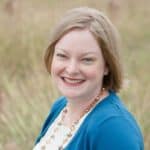
Sandra Peoples is a leading voice in the disability community as an encourager to special-needs parents. Her older sister has Down syndrome, and in 2010 her son James was diagnosed with autism. Sandra serves the Southern Baptist of Texas Convention as their special-needs ministry consultant and serves her church (Heights Baptist in Alvin, TX) as the Inclusion Coordinator for Special-Needs Families. She’s the author of Unexpected Blessings: The Joys and Possibilities of Life in a Special-Needs Family, and her writing has been featured by The Gospel Coalition, The Ethics and Religious Liberty Commission, Christianity Today, and LifeWay Research. She’s the host of the popular podcast Selfcare and Soul Care for the Caregiver. Learn more at sandrapeoples.com.
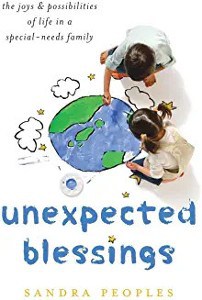
Receive Sandra People's book Unexpected Blessings for your donation of any amount!
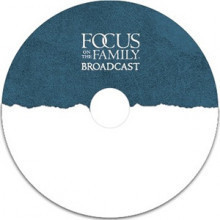
Visit our online store and purchase a CD of today's program for yourself or to share with a friend.

Focus on the Family's staff of licensed, professional counselors can help you bring healing and restoration to your family with Christian perspectives you can trust.
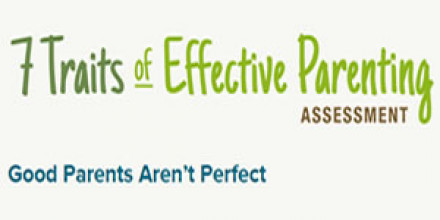
There's no parenting formula to follow, but there are ways you can grow every day. This assessment gives parents an honest look at their unique strengths, plus some areas that could use a little help.
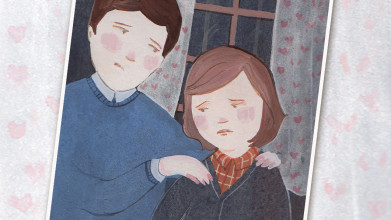
The keys to overcoming guilt lie in understanding the truth about who you are in Christ, and who God created your child to be.

Raising your child with special needs well is a marathon, not a sprint. Teaching social and behavioral skills will take time and energy.

Stand up for those with special needs. Here are 11 Biblical scriptures to help you.
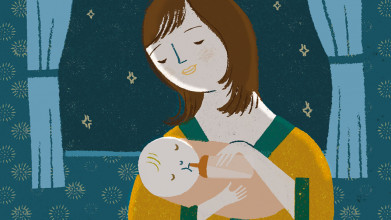
God doesn’t give special children to special parents. He gives them to ordinary ones.
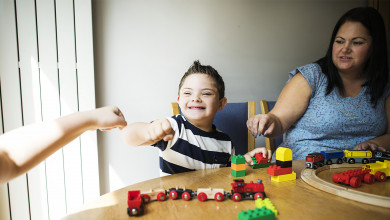
When parenting a child with special needs, it’s easy to fix your eyes on the next surgery, therapy, diet or appointment. But it’s often difficult to simply embrace and enjoy your child in the moment.

Jason Hague talks about living with a broken heart and seemingly unanswered prayer, and shares lessons he's learned about the challenges and joys of parenting a special needs child while relying on God for strength and hope.

In this Adventures in Odyssey drama, a carelessly uttered word from Eugene creates havoc as it becomes the fashionable insult, resulting in a lesson about the power of words.

This discussion offers a preview of Volume #16 “Cultures in Conflict” from the That The World May Know video series, available below.

Debra Fileta will help couples better understand the four seasons of healthy relationships, what to expect during each one, and how to carefully navigate them for a stronger marriage. (Part 1 of 2)

Larnelle Harris shares stories about how God redeemed the dysfunctional past of his parents, the many African-American teachers who sacrificed their time and energy to give young men like himself a better future, and how his faithfulness to godly principles gave him greater opportunities and career success than anything else.

Amy Carroll shares how her perfectionism led to her being discontent in her marriage for over a decade, how she learned to find value in who Christ is, not in what she does, and practical ways everyone can accept the messiness of marriage and of life.

Jonathan McKee offers parents practical advice and encouragement in a discussion based on his book If I Had a Parenting Do Over: 7 Vital Changes I’d Make.